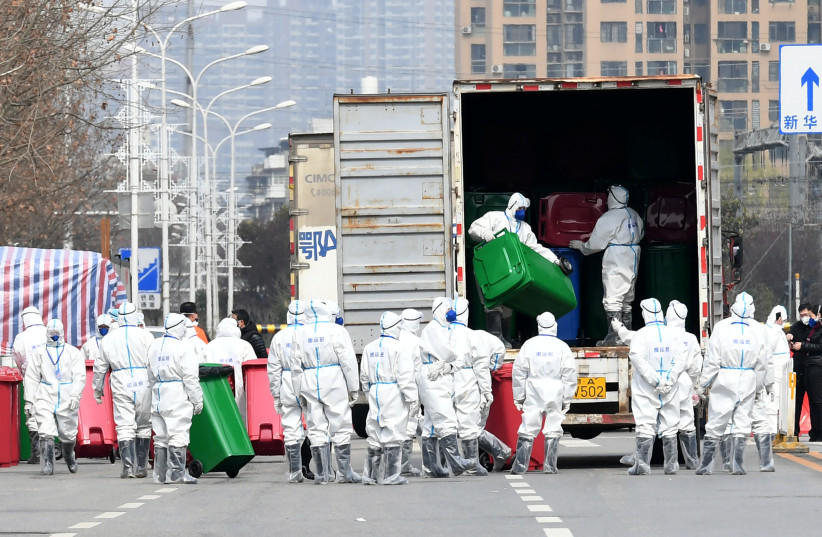Israeli Consul-General in Shanghai Eddie Shapira was held in a medical facility for 10 days, as part of China's zero-COVID policy, he wrote on Facebook over the weekend.
Shapira said the "conditions are reminiscent of a prison," and that he experienced "the 10 most bizarre days that I could imagine."
The diplomat caught COVID-19 with mild symptoms, he recounted.
"The problem is that I caught it in the wrongest place on earth - in China," Shapira wrote. "Here, they take cases of morbidity as seriously as though three years haven't passed and they have not learned anything and are for total separation of anyone exposed to those who are sick. The sick people themselves are put in special hospitals."
Shapira said "nothing could have prepared [him] for the experience," despite dealing with COVID-related issues for two years.

What Israel's consul experienced in a Chinese COVID-19 hospital
"I found myself in a room between two hallways, a kind of aquarium, two single beds, two automatic doors that open with a remote control and a tiny window-like opening for a tray of 'food,'" he wrote. "The days pass hoping for two negative results, with 24 hours between them."
. "Here, they take cases of morbidity as seriously as though three years haven't passed and they have not learned anything and are for total separation of anyone exposed to those who are sick. The sick people themselves are put in special hospitals."
Israeli Consul-General in Shanghai Eddie Shapira
"It's not recommended for claustrophobics, or for anyone," Shapira wrote.
The Foreign Ministry had no comment. A diplomatic source said the situation was not out of the ordinary for China.
US Ambassador to China Nicholas Burns argued earlier this year that the detention of diplomats and separation from their families over contracting the coronavirus or being in close contact with someone who has is a violation of the Vienna Convention on Diplomatic Relations, and got Beijing to promise that US diplomats could quarantine at home. The US was prepared to evacuate any diplomat who the Chinese government would not exempt from being sent to a holding facility.
“We have legal rights here, and reclaiming those legal rights under the Vienna Convention was very important to us. And so, we’ve held the line," Burns said in an interview with Washington Post foreign policy columnist Josh Rogin.
The Chinese Foreign Ministry, however, said that their zero-COVID policy is meant to protect human lives and that "Beijing has provided necessary facilitation and convenience for diplomats from all countries...to perform their duties in line with the letter and spirit of the Vienna Convention," according to an editorial in China Daily.
The spark of protests
China is set to announce an easing of its COVID-19 quarantine protocols in the coming days and a reduction in mass testing, sources told Reuters last week, a marked shift in policy after anger over the world's toughest curbs fuelled widespread protests.
Health authorities announcing the easing in their areas have not mentioned the protests - the biggest show of civil disobedience in China for years - which ranged from candle-lit vigils in Beijing to street clashes with police in Guangzhou.
The measures due to be unveiled include a reduction in the use of mass testing and regular nucleic acid tests as well as moves to allow positive cases and close contacts to isolate at home under certain conditions, the sources familiar with the matter said.
Reuters contributed to this report.
